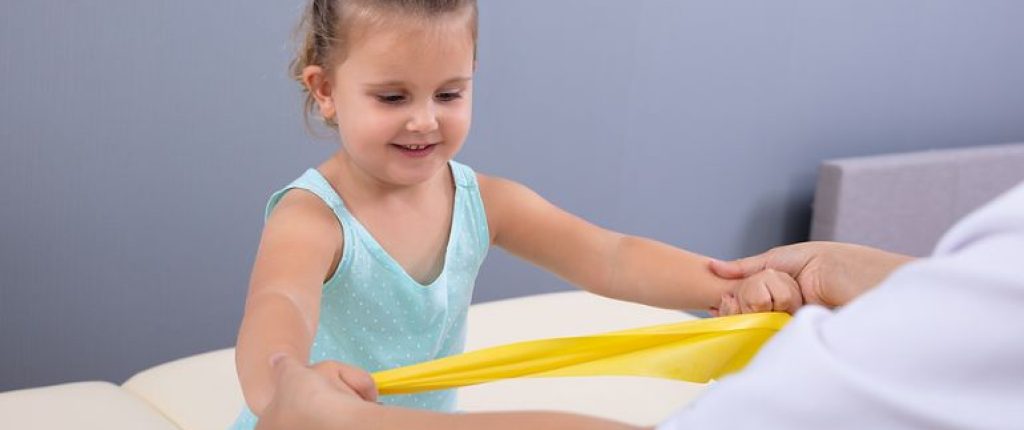If your child experiences motor skill difficulties that limit their ability to move around and play with friends, physical therapy (PT) may be the right solution to help them reach their goals. By working with a pediatric physical therapist, you can ensure that your little one receives the best care tailored specifically to their unique needs.
Common Causes Of Motor Issues In Children
- Developmental Coordination Disorder (Dyspraxia)
- Autism Spectrum
- Down Syndrome
- Cerebral Palsy
- Rheumatoid Arthritis
- Spina Bifida
- Acquired Brain Injuries
- Muscular Dystrophy
Does My Child Need Physical Therapy? 7 Signs The Answer Is “Yes”
- Limited Mobility
- Poor Posture
- Unusual Movement Patterns
- Delay In Motor Development
- Pain
- Muscle Weakness
- Balance Problems
1) Limited Mobility
Mobility issues can cause suffering for your little one—especially if they prevent them from playing and making friends. If your child is having difficulty crawling, walking, running, standing, or sitting up independently, pediatric physical therapy may help them meet these age-appropriate milestones and improve their quality of life.
2) Poor Posture
Your child’s ongoing difficulties with posture while standing, walking, or sitting could indicate an underlying musculoskeletal condition. Physical therapy can help improve their strength and coordination to correct a potential misalignment of their spine or hips.
3) Unusual Movement Patterns
If your child displays unusual movement patterns, a pediatric physical therapist can help them develop better motor skills and coordination. These behaviors include excessive toe-walking, involuntary jerking movements, or a severe lack of coordination during playground activities.
While these behaviors are commonly seen in children on the autism spectrum and aren’t usually a sign of a serious illness, they can still lead to chronic pain, long-term musculoskeletal abnormalities, and problems with their peers if left unaddressed.
4) Delay In Motor Development
Pediatric physical therapy can help children who are not meeting certain age-appropriate milestones, such as crawling or walking, due to a musculoskeletal or neurological developmental delay. An empathetic, kid-friendly therapist will use fun activities and games to ensure that each session is enjoyable for your little one while helping them reach these goals.
5) Pain
It should go without saying that you need to take your child to your family doctor as soon as possible if they are experiencing pain that is severe or that lasts longer than a few days. Depending on the cause of your child’s pain, the pediatrician might provide a physical therapy referral. PT can offer relief from many types of pain and discomfort associated with movement, including headaches, muscular pain, and joint issues.
6) Muscle Weakness
Muscle weakness can be difficult to diagnose in toddlers and preschoolers still undergoing significant motor development. Pediatric physical therapists are specially trained to assess and treat young children struggling with muscle weakness or imbalance that may be holding them back from playing or participating in activities they enjoy.
7) Balance Problems
Balance issues can be common in children and may lead to injuries if left unaddressed. A pediatric physical therapist can help your child improve their balance and coordination to give them the confidence they need to explore and grow.
Physical Therapy For Toddlers & Kids
A pediatric physical therapy evaluation can provide valuable insight into the type of intervention most appropriate for helping your little one reach their developmental milestones. At Centennial Sports & Physical Therapy in Spokane, WA, we do just that. If you notice any of the seven signs listed above, we invite you to contact us today to learn more about how we can support your child’s development.


